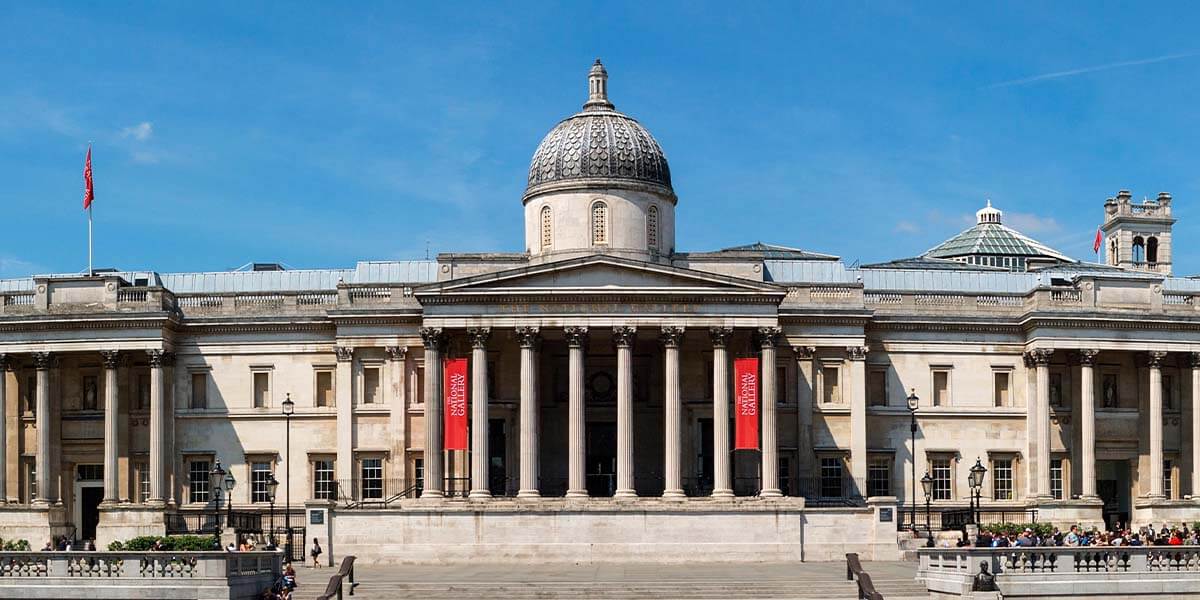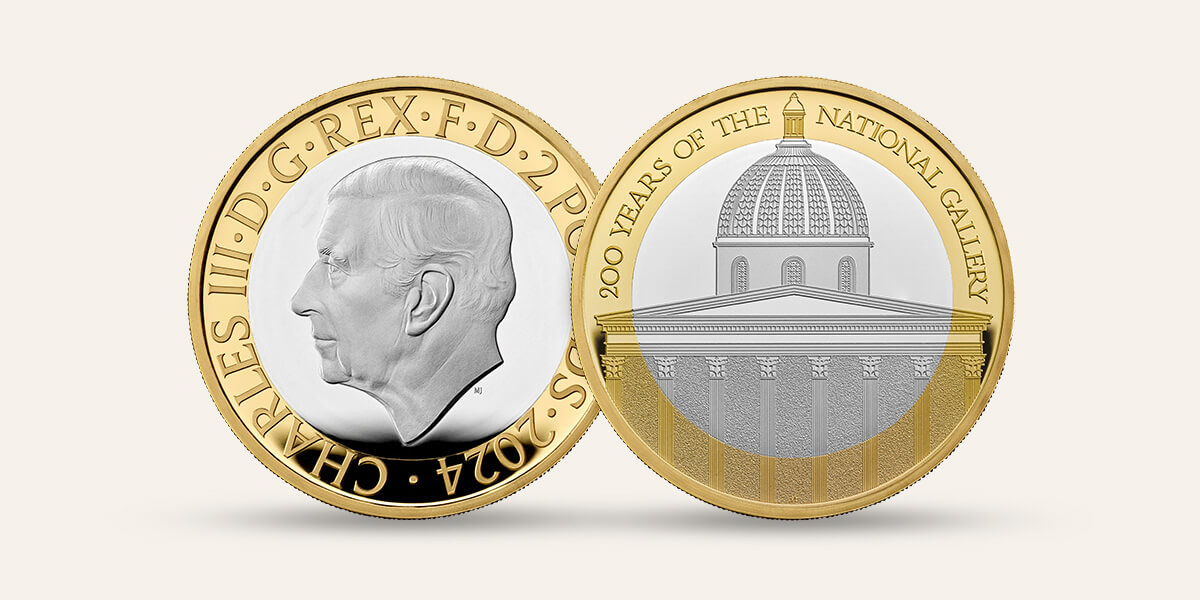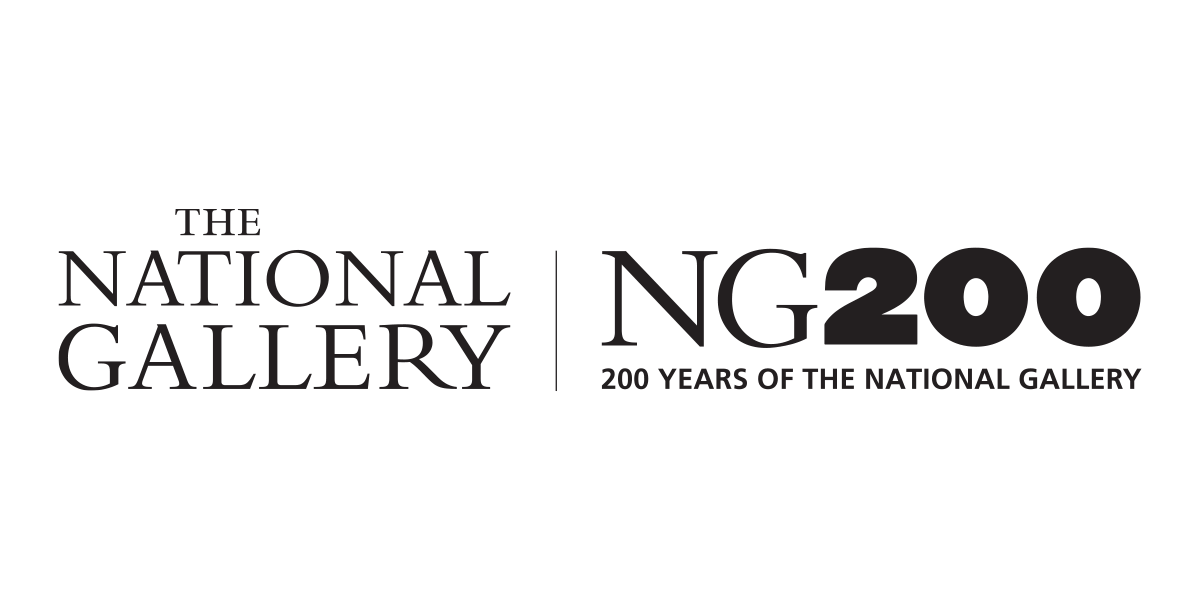From its very beginnings, the National Gallery has successfully endeavoured to make art accessible to all. The collection, which now features more than 2,300 paintings, began as 38 pictures acquired from the financier John Julius Angerstein by parliament in April 1824.
Angerstein’s house at 100 Pall Mall initially served as a temporary gallery to display the pictures, until it was deemed insufficient in comparison to other national galleries, such as the Louvre in Paris. In 1838, Trafalgar Square, chosen for its central location, became the home of the new building and has remained so ever since.

The National Gallery has proudly stood as an epicentre for art since 1824, even weathering the bombings during the Second World War. The Gallery’s paintings were completely evacuated upon the outbreak of the war and the building went on to suffer nine direct bombings between October 1940 and April 1941.
Today, the National Gallery remains open to all, featuring works by British artists such as William Hogarth and John Constable, as well as famous works from esteemed international artists, including Rembrandt and Vincent van Gogh.

A Miniature Work of Art
Originally hailing from Australia, Edwina Ellis is a designer, engraver and printmaker who has designed several coins for The Royal Mint, including a UK 50p coin honouring Stephen Hawking and a set of four Bridge £1 coins. The artist has skilfully depicted the National Gallery at the centre of the coin marking its 200th anniversary, with the anniversary itself framing the building in a semi-circle. The edge inscription reads ‘MAIORVM GLORIA POSTERIS LVMEN EST’, which means ‘The glory of our ancestors is a light to our descendants’ and is inscribed on the ceiling above the main staircase in the Wilkins Building of the Gallery. The phrase conveys the notion that the great artists of the past inspire those of the future – a founding principle of the National Gallery.

“Centrally dominating the highest ground of London’s Trafalgar Square, the National Gallery is a much-loved landmark for Britons and visitors alike. Its classical central facade and lead-covered scaly dome had to be instantly recognisable, so a centrally placed silhouette best reflected its symmetry and simplicity.
“I balanced and sized the dome so that the lantern at its apex cut the metal joint of the coin. I let the curve of the coin add an interesting cut-off to the serried row of Corinthian columns on the facade; it had to look as if I had not meddled with the silhouette at all. Taking the letters from the National Gallery logo left me with quite a few to adapt accordingly, then subtly distorting them for the curve of the coin was fun.”
Edwina Ellis
Explore Annual Sets

© The National Gallery, London
